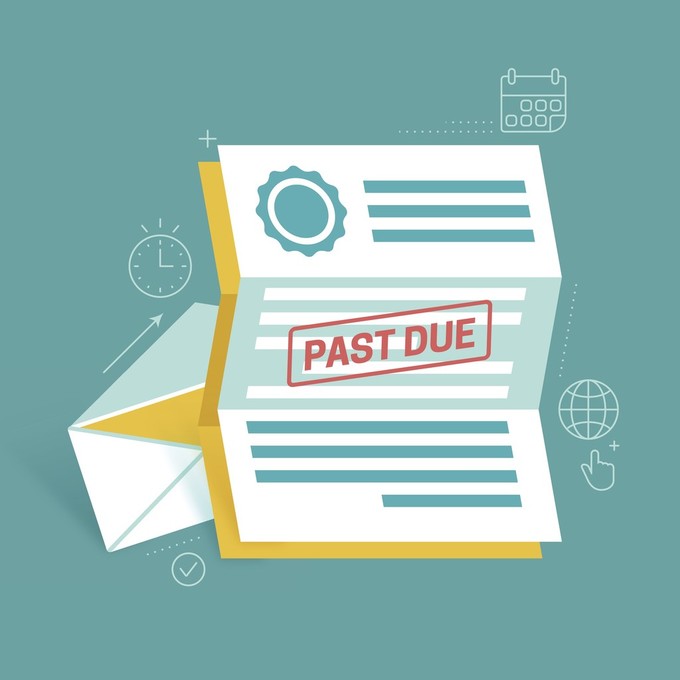Even if you’ve never had an overdue bill, you probably still know about accounts going to collections. Or, at least, you have an idea of what it entails.
But is an account in collections really that big of a deal? How does the process work, what is the impact on your credit, and how can you fix a debt that has already been sent to collections?
What Is “Going to Collections”?
If you fail to pay an account – whether an overdue credit card statement, a balance on a utility bill, or even an unpaid mortgage – the creditor will do their best to coax that money out of you. They’ll probably harass you with calls, letters, and emails, and even tack on late fees. They may close your account, and utility companies will shut off service.
If none of those efforts succeeds in getting you to bring your account up to current, they’ll start talking about “collections.” Some companies have their own collections departments, whose job it is to nag you until you pay up. Other companies will sell your debt to third-party collections agencies for pennies on the dollar, writing off the loss and essentially giving the new company the right to become your debt stalker.
Collections departments and agencies are great at not only recovering overdue funds, but also reporting the debt to the credit bureaus. And once that happens, you have a much bigger issue on your hands.
When Will My Account Go to Collections?
Different creditors manage overdue debts differently. Some will send your account to collections after only 60 days of no response, or after attempting to contact you about your debt a certain number of times. They put in their effort to get you to pay; if they don’t succeed, they will wash their hands of it pretty quickly.
Others will wait a lot longer. You might not see an account go to collections for six months or even more… I’ve heard of one showing up a shocking two years later! If your debt is sold to a third-party agency, it usually takes a bit longer to start the collections process; in-house collections departments are typically a lot faster.
This is especially true with certain kinds of accounts. For instance, an auto loan that’s overdue will usually garner a quick reaction from your lender. Miss a couple payments and fail to respond, and they will happily show up to repossess your vehicle… and fast!
What Happens When It Goes to Collections?
There are two big things that usually happen when an account goes to collections, and neither of them are good.
Your creditor will, after failing to contact you and collect payment, eventually charge-off your debt. This means that they will claim it as a loss, (usually) close the account, and wash their hands of it. Unfortunately, they will also report this charge-off to the credit bureaus.
A charge-off, as notated on your credit report, is a very big deal. Not only will you suffer the impact of months of late payments (also marked on your reports), but the charge-off notation will seriously haunt you for the next seven years. If you try to apply for a credit-related product – especially something like a mortgage or auto loan – you’ll have a very hard time succeeding. After all, a charge-off means that a company put in some serious effort to get you to pay your debt, to no avail.
The second thing that happens is that your account will pop up in a second place on your credit report: the “accounts in collections” category. This public record will show that the debt was sold off to a collections agency, and will have the date that the agency chooses to file their report. What does that mean? Well, let’s say that you had some financial trouble in 2015, and let some payments fall behind. You’ll have a few late payment notations (and maybe aa charge-off or two) notated from that year, which should fall off in year 2022. However, if the account is sold to a collections agency a few years later (let’s say it happened this year, 2018), that public record will have the filing date instead. This means that the collections report won’t fall off until 2025, impacting your credit for an additional three years.
There’s one very big downside to an account going to collections: even if you call up the agency and pay off your debt, it won’t be erased from your credit report. The record will be changed to show that the debt was satisfied, but the credit’s charge-off and the collection agency’s record will remain on your credit report until they fall off… usually seven years later. For this reason, it’s so incredibly important to look into deferment programs if you’re in a tight place, and ensure that auto-paid accounts don’t slip through the cracks.
How to Avoid the Trouble of Collections:
If you are having financial trouble and simply can’t pay your bills each month, there are options available to you. You can call up your creditors and explain the situation; many have hardship programs that you can enroll in, which will reduce your monthly payments or even delay them by a few months. This could buy you enough time to get back on your feet if you got sick or lost your job.
Sometimes an account can go to collections without your knowledge. Perhaps you thought that you paid off a credit card in full, only to learn later on that (thanks to rolling interest) you had a small balance remaining. Or maybe you moved and a final utility bill was never received. By checking your credit report regularly, you can catch these issues early on. If you see an account balance that doesn’t look right, call up the company. If a late payment is recorded that you’re not aware of, look into what and why. If there’s an error, either call the creditor directly or file a dispute with the credit bureaus; you can also write a goodwill letter if you think that extenuating circumstances were to blame.
Accounts going to collections can happen, whether it’s due to financial hardship or ignorance of a bill. Unfortunately, the impacts of a collection on your credit is far-reaching, and can follow you far beyond the typical seven-year period. By keeping a close eye on your bills each month and monitoring your credit report, as well as seeking out alternative options when you’re in a tight place, you can avoid this credit-wrecking account status altogether.

